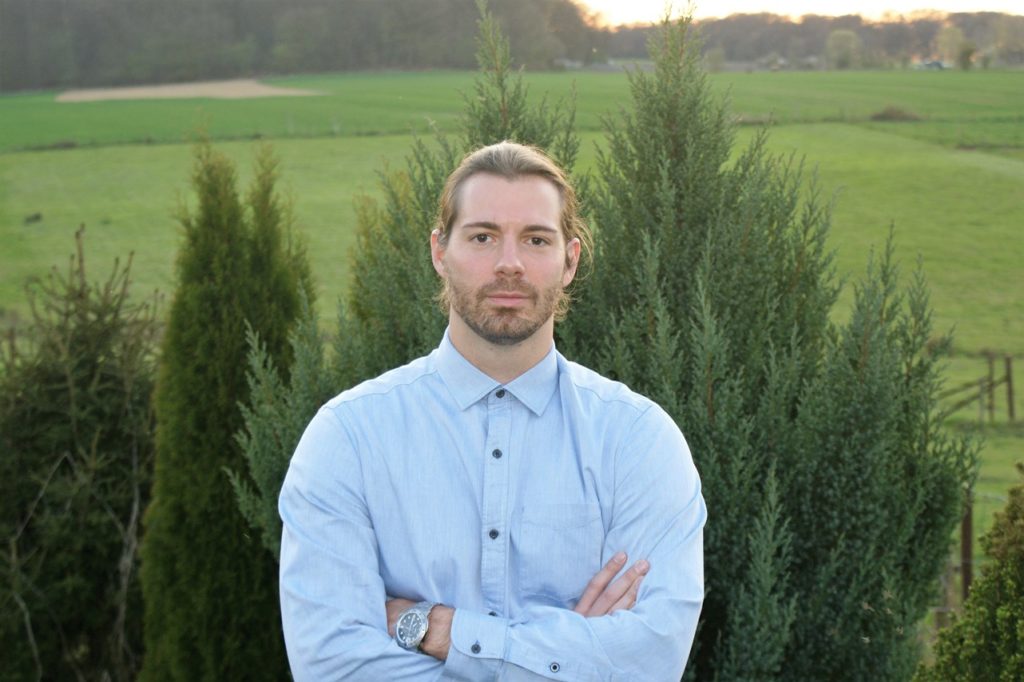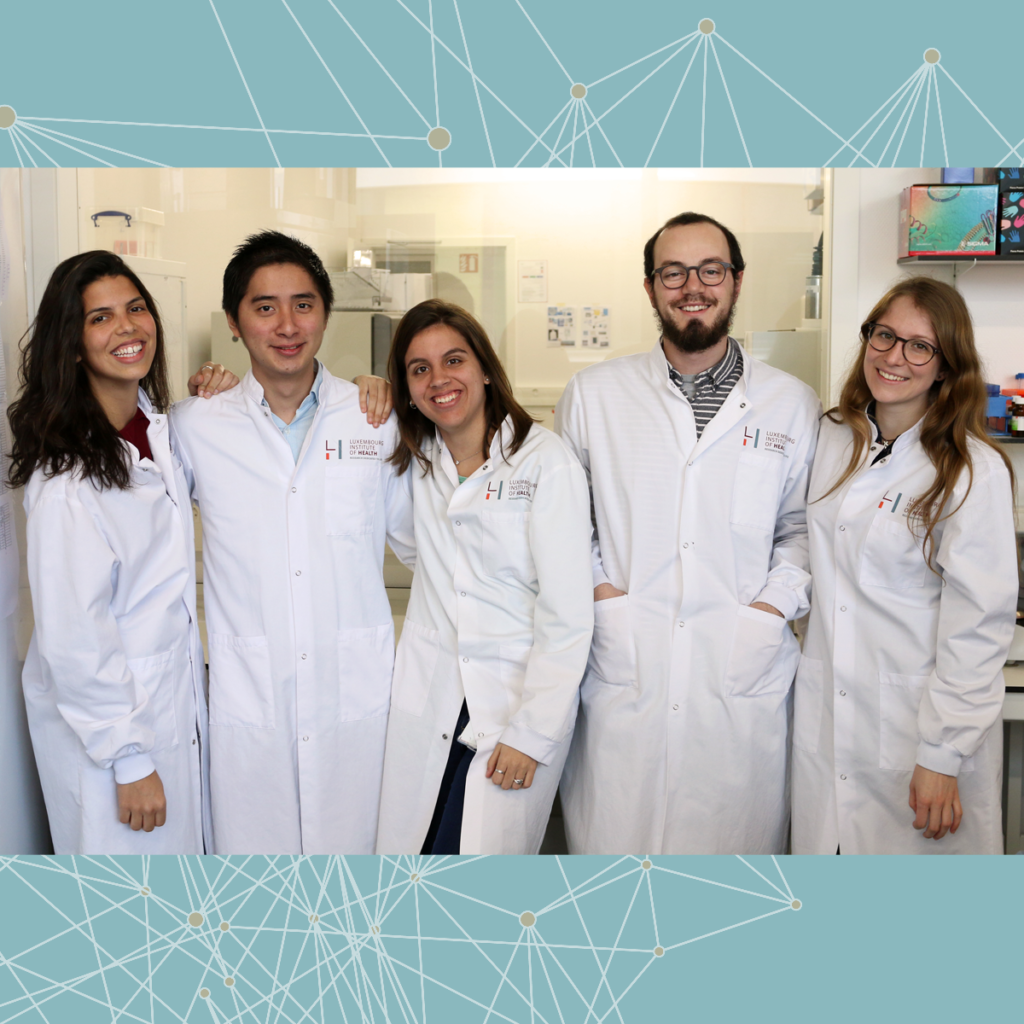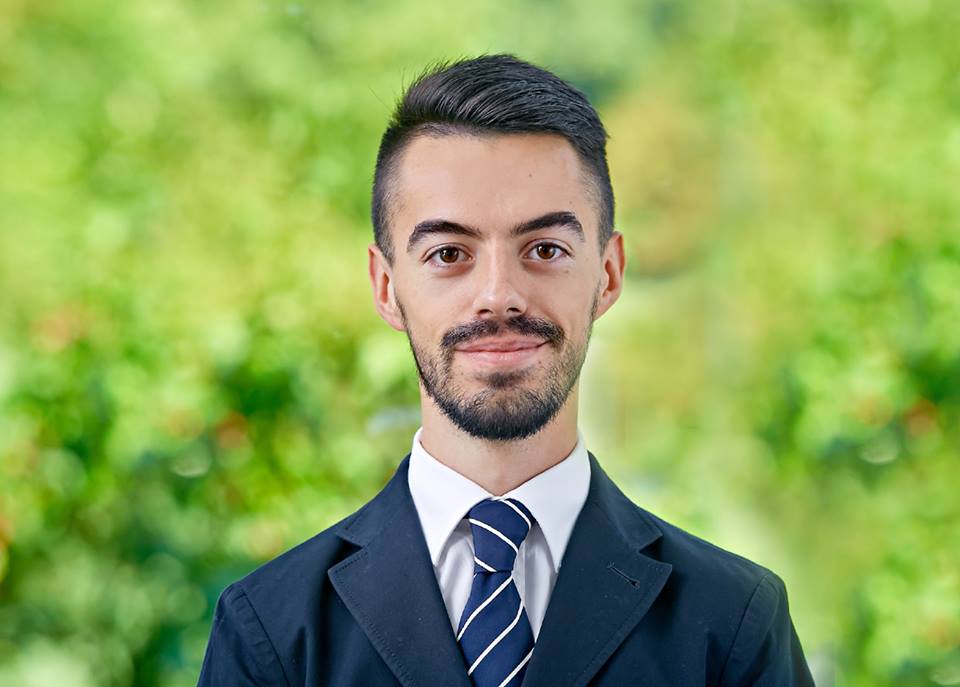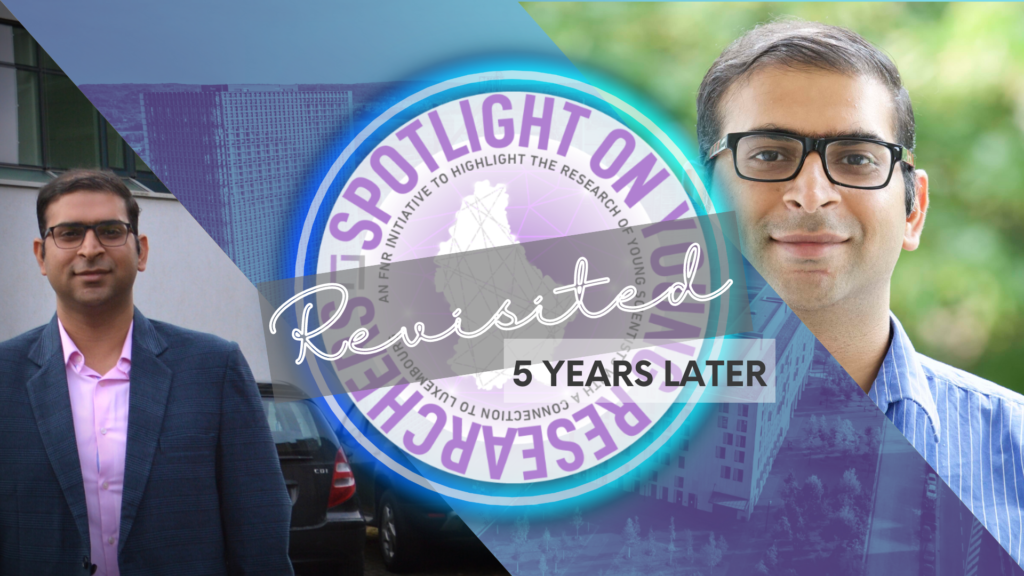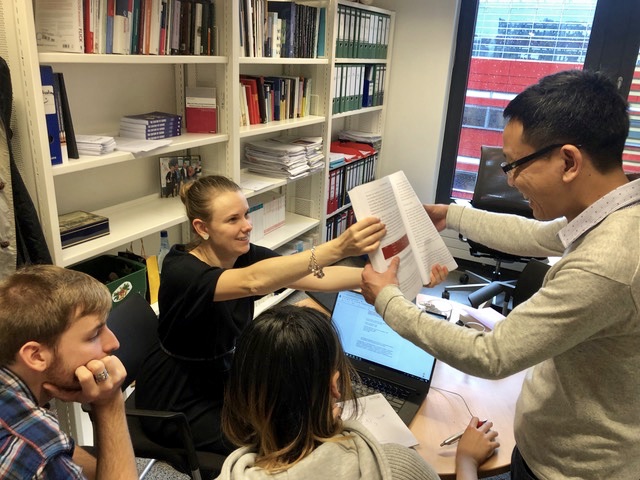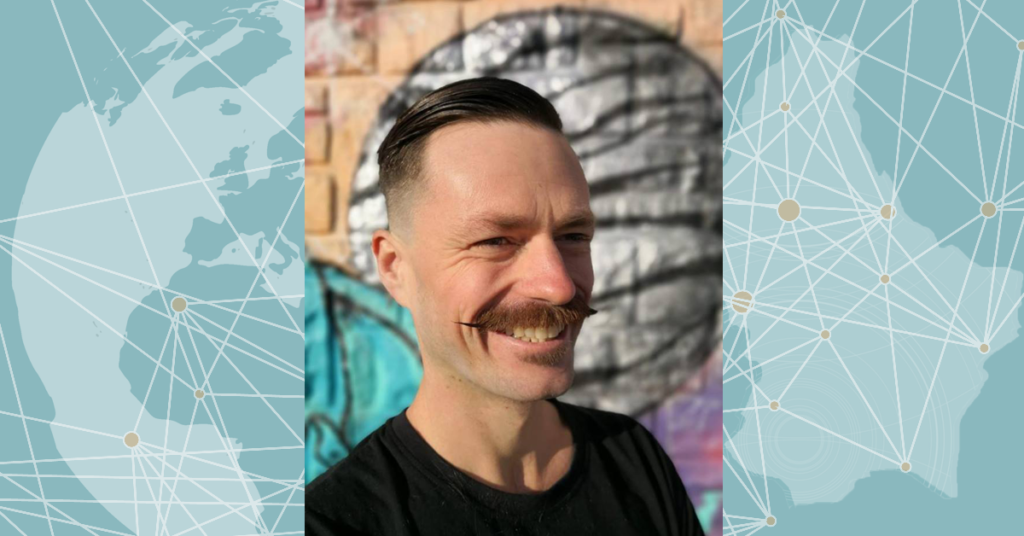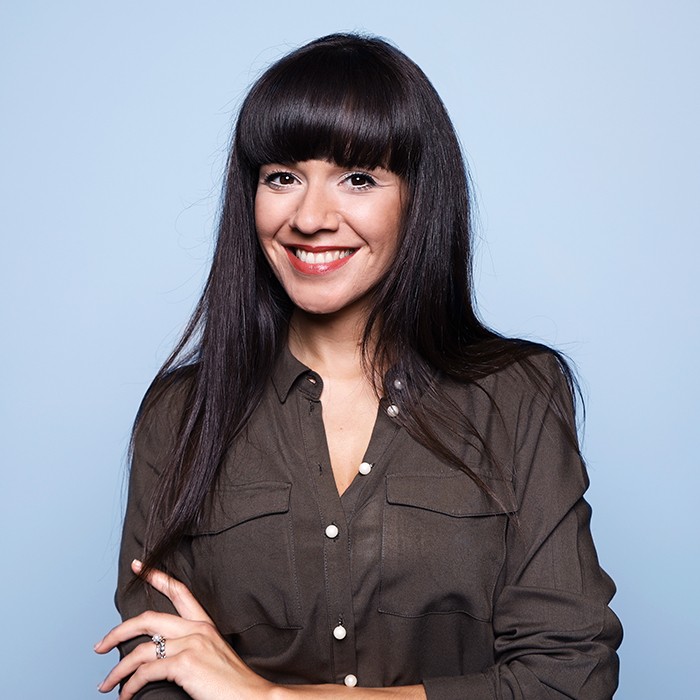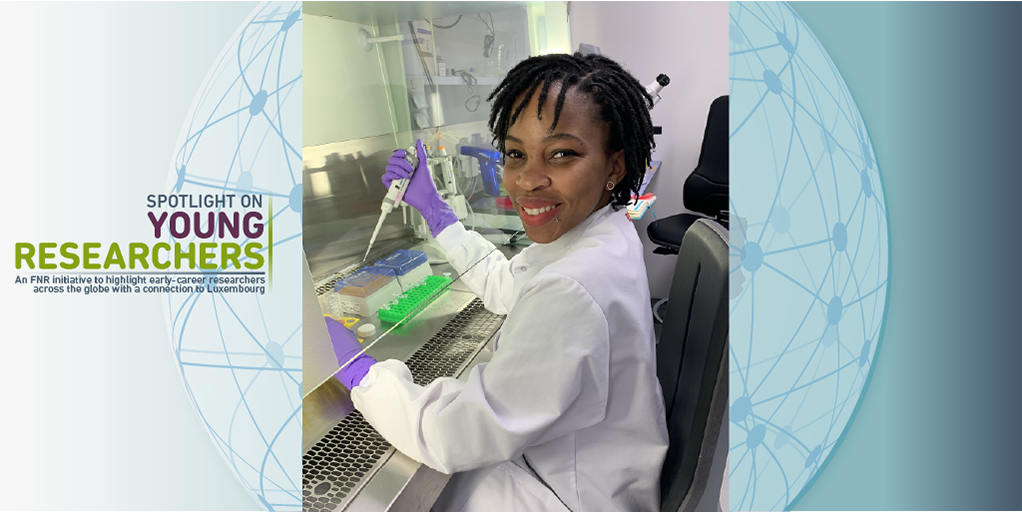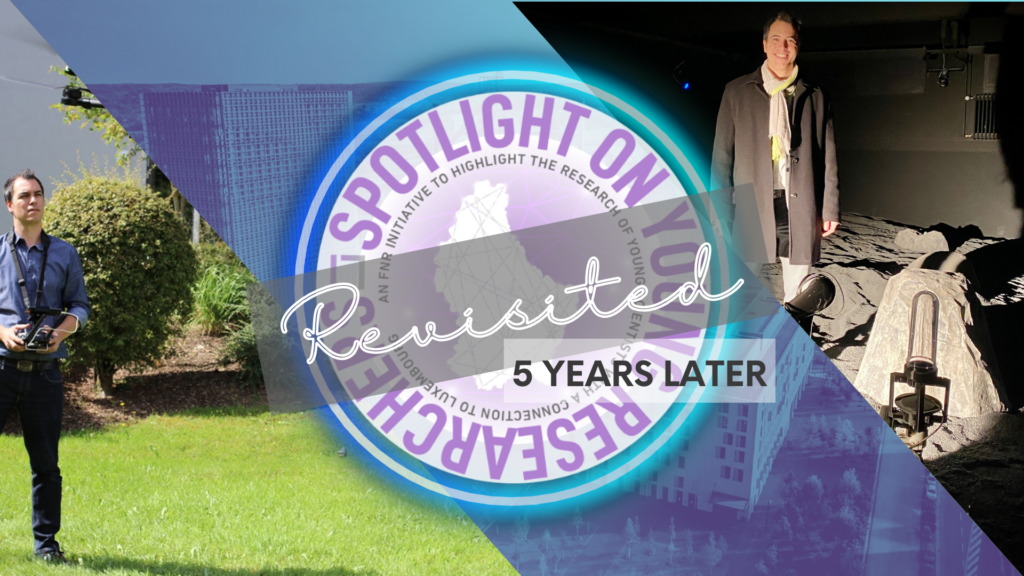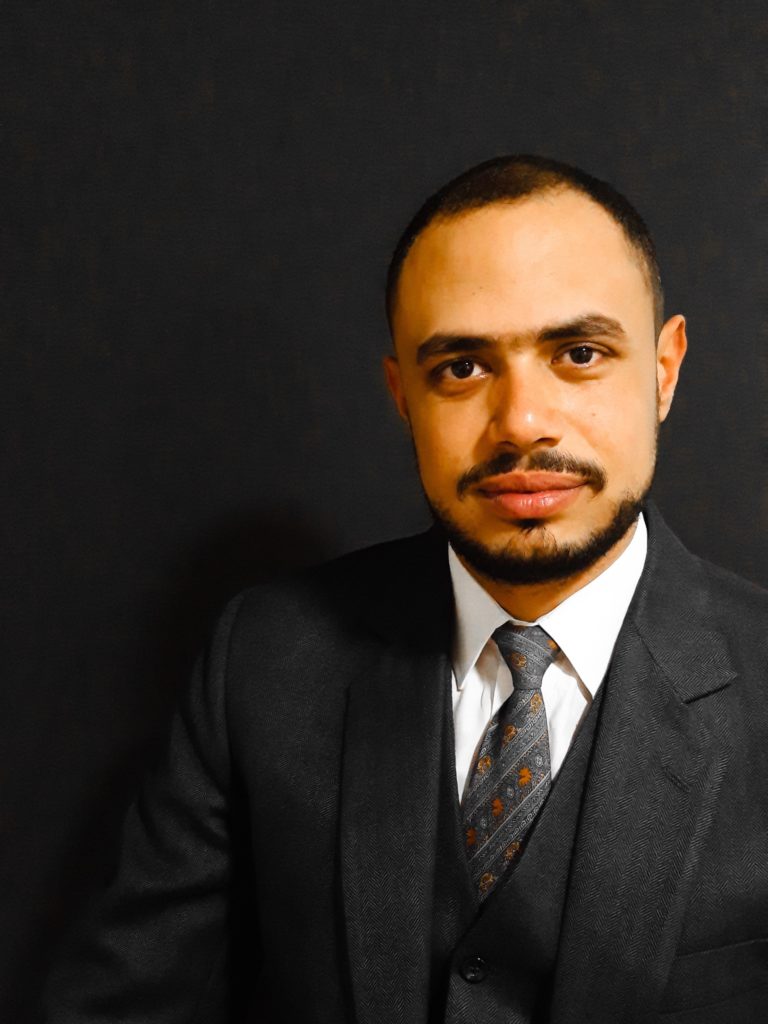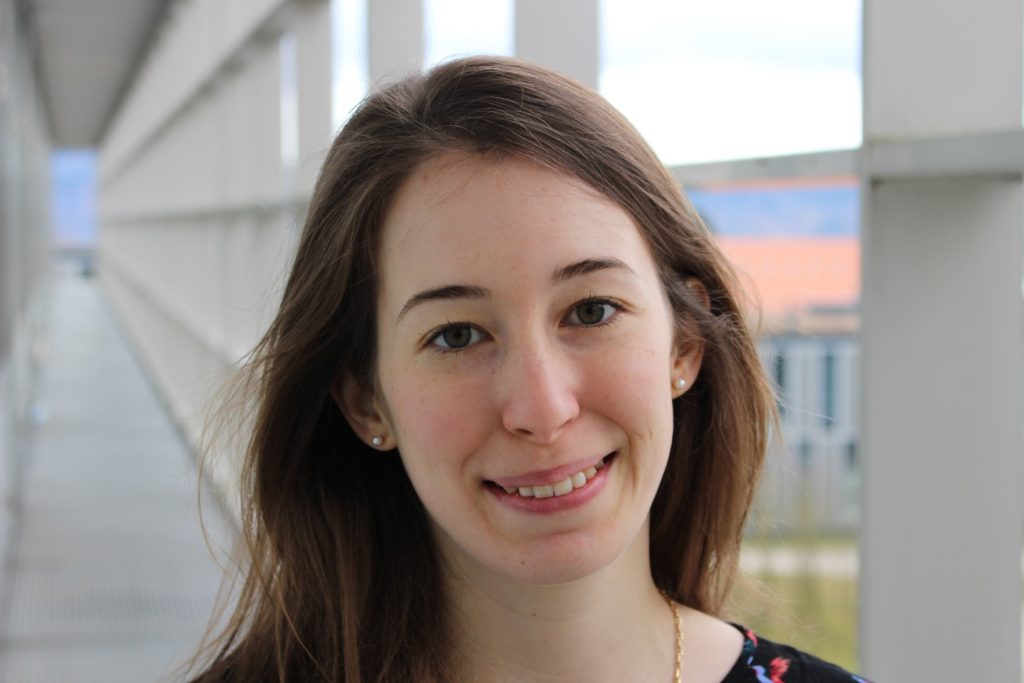Alex Gansen first dabbled in research during his Masters studies in physics at the University of Fribourg (Switzerland), and then decided he wanted to take on the challenge of a PhD, so the Luxembourg national returned to his home country. Alex has just submitted his thesis at the end of the 4th year of his AFR PhD in computational electromagnetics at the Luxembourg Institute of Science and Technology (LIST) in collaboration with the College of Engineering in Swansea. He sees the close links between local industry and research in Luxembourg as a great advantage for the future of research in the Grand Duchy.
After his studies in physics with a focus on Soft Matter physics, Alex wanted to do more applied research. He even declined a PhD offer in Switzerland because the other PhD project he was offered at LIST was more appealing – so what’s this project about?
Computational electromagnetics or generally computational engineering is a relatively young discipline. The popularity significantly increased in the 80s due to decreasing prices of computers making the equipment affordable to more people. Computational electromagnetics revolves around modelling the interaction of electromagnetic fields with physical objects and the environment.

“In my work, I mainly concentrate on a special configuration of electromagnetic fields, called electromagnetic waves which are nothing else than light in the broadest sense. It may be the visible light from the sun or invisible ‘light’ in the radio frequency regime used for communication or Wi-Fi. Maxwell’s equations form the mathematical basis of classical electromagnetism[1].”
“These equations can only be analytically solved for trivial interaction cases. For example, how light is scattered from a sphere. If we are, however, interested how radiation is reflected from complex structure like an aircraft these equations need to be solved numerically.”
As part of his PhD, Alex investigates how electromagnetic waves interact with matter: “My task is to develop better numerical algorithms for solving Maxwell’s equations faster and with lower memory requirements. Furthermore, I work on the simulation of so called metamaterials, these are artificial materials with properties that do not exist in nature. They lead to very challenging interactions with light.”
“Programming is like writing a book except when you miss a single comma on page 126 the whole book makes no sense”
So what does computational electromagnetics look like in practice on a daily basis? “Imagine I work on a specific problem. For example, how is the light reflected/transmitted after interacting with dielectric slab like a plate of glass? First, I have to derive the equations (starting from Maxwell’s equations) describing this interaction analytically (pen and paper). In the next step I think about how I can write them numerically (in a way a computer understands it). Then I start to program.
“Finally I test my program by comparing my results with some test cases that can be solved analytically. If both solutions agree my program works. Otherwise I have to find the error. This would be a perfect day. In reality it may take months to derive and especially implement such equations. There is a very nice quote with respect to this ’Programming is like writing a book except when you miss a single comma on page 126 the whole book makes no sense’.”
The main aim of Alex’s work is to improve the speed and reduce the memory requirements compared to other electromagnetic commercial solvers or methods. An example is computing the transmission of light through a material: This is vital for the development of objects such as antennas, because the radiation should be able to go through a given material. This can also be extended to things such as a wifi signal, which should not be blocked by a thin wooden door, just as the signal emitted by a smartphone should not be blocked by the cover of the phone.

Solving problems nobody has solved before
Alex says he had a great time time during his PhD, putting this down to his “amazing supervisors, and the fact that “I really like what I’m doing, tackling and solving problems nobody solved before, contributing to the technological development of society.”
As for what the future holds, Alex has not yet decided if he wants a long career in research, citing how difficult it is to get a permanent contract in research, and the impact this can have on the ability to settle down.
However, Alex sees a great deal of potential for research in Luxembourg and finds it a smart move to connect research with local industry in the way it is being done in the Grand Duchy:
“The link between research and local industrial partners is reinforced, leading to interesting and much more applied research projects and collaborations. Of course one of the reasons behind this is that 80% of the GDP comes from services, mainly banking. It is always very risky to depend on a single source of income especially nowadays with all the problems on the financial market.”
“Generally, Luxembourg has in my opinion a great potential because, in contrast to the rest of the world, the government is investing a lot of money into new infrastructure and research in general.”
Inspiring a new generation of researchers
Alex also took part in the 2017 edition of Chercheurs à l’école, which took place from 27 – 31 March. Chercheurs à l’école is an FNR initiative where researchers visit schools across the country to talk about life as a researcher.
Taking about the experience of taking part in Chercheurs à l’école, Alex says:
“It was the first time I participated in the researchers at school and I decided to go to the Lycée Ermesinde in Mersch, because this high school differs from its concept a bit from ‘normal’ schools by offering many activities to their students besides the normal classes and encouraging them to participate in. It was well organised and the staff was informed about our arrival. Furthermore all the necessary equipment was available and working.
The session was from 12:30 to 14:45, so the students participating sacrificed their lunch break for us. I shared the session with another researcher from the University of Luxembourg. All the attendants were polite, motivated and followed the different presentations carefully. It was for me a pleasure to present my work to them and talk about the everyday life of a researcher from my point of view.
I hope I could answer all their questions to their satisfaction and motivate some students to start a career as researcher, maybe even in the field of computational engineering. If I get the opportunity, I will definitely participate again and I can only encourage more researchers to do so to motivate as many students as possible.”
[1] Set of equations that underpin all electric, optical and radio technologies, such as power generation, electric motors, wireless communication, cameras, televisions, computers
Published on 6 April 2017
About Spotlight on Young Researchers
Spotlight on Young Researchers is an FNR initiative to highlight early career researchers across the world who have a connection to Luxembourg. This article is the 5th in a series of around 20 articles, which will be published on a weekly basis. You can see more articles below as and when they are published.




